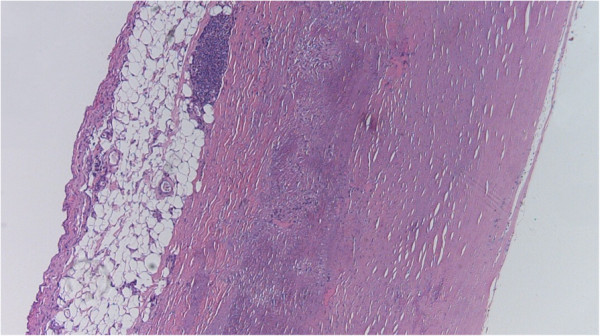Playlist
Show Playlist
Hide Playlist
Atherosclerosis: Definition
-
Slides 01 VascularMedicine advanced.pdf
-
Reference List Vascular Medicine.pdf
-
Download Lecture Overview
00:01 Hello. Welcome to the advanced segment of the vascular medicine lecture series. We're going to examine a whole variety of different diseases that affect the arteries, the veins, the lymphatic system. And we're going to start with arterial disease and atherosclerosis. 00:19 And as I've said in the basic series, this is the commonest disease in the world today that is fatal, so it's a very, very important disease from public health and from individual standpoint. Let's start with a definition. Atherosclerosis is a generalized disease. It's a broad term for diseases in a variety of arteries. The artery wall thickens as a result of invasion and accumulation of white blood cells that lead to fibrosis and inflammation, just as if there had been an infection. Cholesterol in the blood gets into the artery wall along with these white cells and sets off a whole reaction. And you can see, in the last two pictures, a normal inside of a blood vessel and an atherosclerotic vessel. It looks like all kinds of hills and bumps filled with scar tissue and cholesterol. What happens when this develops (atherosclerosis), the artery gradually becomes blocked. Blood flow is reduced. We can have ischemia, or lack of blood flow, or one can even form a blood clot and totally obstruct the blood vessel, with the resultant death of tissue beyond the area that has been blocked. In the heart, blockage of a coronary artery leads to a myocardial infarction, or death of heart tissue (a heart attack), and this can possibly be fatal. It is one of the commonest events that we take care of in hospitals around the world. Let's talk a little bit about the epidemiology. 02:03 I've already given you some clues. This is the number-one cause of death in the world: atherosclerotic disease. Atherosclerotic cardiovascular disease kills more people each year than a whole variety of well-known other diseases, such as Alzheimer's, accidents, and cancer. 02:25 In the United States, over 152,000 Americans are killed by cardiovascular disease every year, and these are individuals under age 65. In 2002, 32% of the deaths from cardiovascular disease occurred prematurely—that is, before age 75. And 75 is pretty close to the average life expectancy in the United States. Indeed, this is a major plague, and there's tremendous efforts in the United States and throughout the world to stem this plague.
About the Lecture
The lecture Atherosclerosis: Definition by Joseph Alpert, MD is from the course Arterial Diseases.
Included Quiz Questions
According to a 2002 survey what percentage of premature deaths occurred due to a cardio-vascular diseases?
- 32%
- 42%
- 46%
- 17%
- 26%
Which of the following conditions is the second commonest cause of death
- Malignancy.
- Alzheimer’s.
- Diabetes.
- Respiratory disease.
- Hypertension.
Customer reviews
5,0 of 5 stars
| 5 Stars |
|
5 |
| 4 Stars |
|
0 |
| 3 Stars |
|
0 |
| 2 Stars |
|
0 |
| 1 Star |
|
0 |




